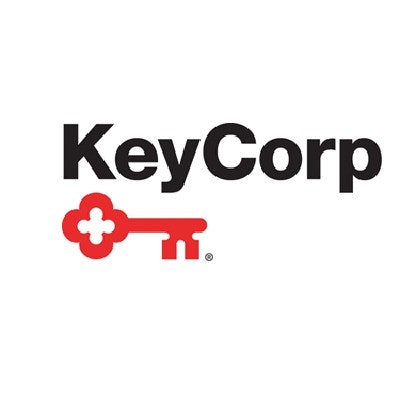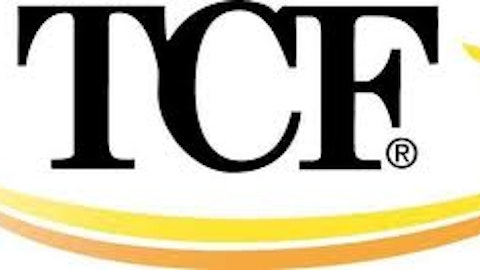KeyCorp (NYSE:KEY) reported EPS of $0.27 this morning for its second quarter financial results, which was $0.01 below the $0.28 estimate, while revenues of $1.08 billion beat expectations by $30 million. CEO Beth Mooney commented on the top line beat: “Revenue benefited from positive trends in our core fee-based businesses, including investment banking and debt placement fees, which had a record quarter and was up 42% from the prior year. We also had momentum in trust and investment services and cards and payments income. Average loans continued to grow, driven by commercial, financial and agricultural loans, which were up 10% from one year ago.” The noninterest expense rose by 3.5% on a year-over-year basis to $711 million and a 4.9% increase occurred in personnel expense, taking it to $408 million. The net interest margin, which is an important indicator of a bank’s profitability, declined to 2.88% from 2.91% in the same quarter last year. Shares of KeyCorp have declined by 1.34% today following the earnings release.

Although the popularity of KeyCorp (NYSE:KEY) among the hedge funds that we track increased to 4.8% from 3.9% during the first quarter, the amount that these funds had invested in the company took a downturn. A total of 35 firms had invested $838.39 million in the company at the end of March, compared to 29 funds with $1.33 billion at the end of last year. KeyCorp (NYSE:KEY)’s stock price increased by a little more than 2% during this period, which makes the flight of capital rather immense, even as overall ownership increased. Shares did have some growth left in them in the second quarter, of nearly 7%, but are now flat in the third quarter.
First a quick word on why we track hedge fund activity. In 2014, equity hedge funds returned just 1.4%. In 2013, that figure was 11.3%, and in 2012, they returned just 4.8%. These are embarrassingly low figures compared to the S&P 500 ETF (SPY)’s 13.5% gain in 2014, 32.3% gain in 2013, and 16% gain in 2012. Does this mean that hedge fund managers are dumber than a bucket of rocks when it comes to picking stocks? The answer is definitely no. Our small-cap hedge fund strategy, which identifies the best small-cap stock picks of the best hedge fund managers returned 28.2% in 2014, 53.2% in 2013, and 33.3% in 2012, outperforming the market each year (it’s outperforming it so far in 2015 too). What’s the reason for this discrepancy you may ask? The reason is simple: size. Hedge funds have gotten so large, they have to allocate the majority of their money into large-cap liquid stocks that are more efficiently priced. They are like mutual funds now. Consider Ray Dalio’s Bridgewater Associates, the largest in the industry with about $165 billion in AUM. It can’t allocate too much money into a small-cap stock as merely obtaining 2% exposure would really move the price. In fact, Dalio can’t even obtain 2% exposure to many small-cap stocks, even if he essentially owned the entire company, as they’re simply too small (or rather, his fund is too big). This is where we come in. Our research has shown that it is actually hedge funds’ small-cap picks that are their best performing ones and we have consistently identified the best picks of the best managers, returning 139% since the launch of our small-cap strategy compared to less than 59% for the S&P 500 (see the details).
Insider trading can give valuable insights into a company’s future prospects as well, from the management’s lens, though it should be noted that insider purchases are a much more reliable indicator than insider sales, which can occur due to a broad range of reasons, and not just a bearish outlook. While KeyCorp (KEY) hasn’t had any insider sales this year, insider purchases have been made by the company’s Director Ann Ruth Gillis, to the tune of 6,200 shares.
Let us move on to the fine details of hedge fund investments in KeyCorp (KEY).



